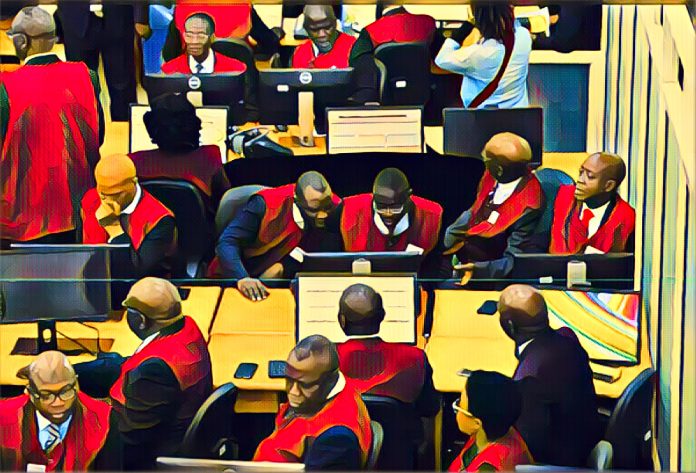The Nigerian equities market experienced its highest daily loss in recent months, coinciding with a week of nationwide protests. The market downturn reflects growing investor concern over the country’s socio-political stability and economic outlook.
On Tuesday, the Nigerian Stock Exchange (NSE) saw a significant decline, with the All Share Index (ASI) dropping by 2.47%. This sharp decrease erased gains from previous trading sessions, leading to a market capitalization loss of approximately N500 billion. The protests, sparked by widespread discontent over economic policies and governance issues, have heightened uncertainty among investors, contributing to the market’s volatility.
The protests were triggered by various factors, including fuel price hikes, rising inflation, and persistent unemployment. Demonstrators across the country have called for government accountability and urgent reforms to address the economic hardships facing ordinary Nigerians. The unrest has intensified in major cities, disrupting business activities and causing concern among local and foreign investors.
During the trading session, blue-chip stocks such as Dangote Cement, MTN Nigeria, and Zenith Bank suffered significant losses. Analysts attribute the market’s poor performance to investor anxiety over the potential impact of the protests on the economy. The heightened tensions and uncertainty have led to a sell-off, as investors seek to mitigate risks by liquidating their holdings.
The financial sector was particularly hard hit, with banking stocks leading the decline. Guaranty Trust Holding Company, Access Bank, and United Bank for Africa saw substantial drops in their share prices. The sector’s vulnerability is linked to concerns about the broader economic implications of the protests, including potential disruptions to business operations and financial transactions.
In response to the market downturn, the Central Bank of Nigeria (CBN) has urged investors to remain calm and assured them of the resilience of the financial system. The CBN emphasized that it is closely monitoring the situation and will take necessary measures to maintain stability and support economic growth. However, market participants remain cautious, awaiting further developments.
The government, under President Bola Tinubu, has faced mounting pressure to address the economic grievances fueling the protests. The administration has implemented several austerity measures aimed at stabilizing the economy, including the removal of fuel subsidies and currency reforms. While these policies are intended to attract foreign investment and reduce the fiscal deficit, they have also led to increased living costs, sparking public outcry.
Economic experts warn that prolonged unrest could have severe consequences for Nigeria’s economic recovery. The country, still grappling with the aftermath of the COVID-19 pandemic, cannot afford extended periods of instability. The ongoing protests threaten to derail efforts to attract foreign investment, crucial for revitalizing the economy and creating jobs.
Despite the current challenges, there is hope that dialogue and negotiations between the government and protest leaders could lead to a peaceful resolution. Analysts suggest that proactive measures to address the protesters’ demands, such as targeted social interventions and economic reforms, could help restore investor confidence and stabilize the market.
The Nigerian equities market has shown resilience in the past, rebounding from periods of volatility driven by external and internal factors. However, sustained recovery will depend on the government’s ability to effectively manage the socio-political situation and implement policies that promote economic growth and stability.
In the meantime, investors are advised to adopt a cautious approach, diversifying their portfolios to mitigate risks. While the current market conditions are challenging, they also present opportunities for strategic investments in undervalued stocks poised for recovery once stability is restored.
As Nigeria navigates this turbulent period, the commitment to transparency, accountability, and inclusive economic policies will be crucial in building a more resilient and prosperous future for all Nigerians.
Source: Business Day NG



